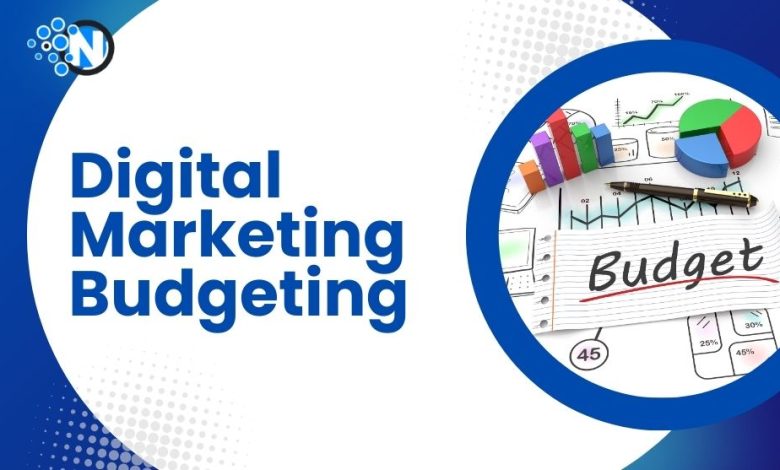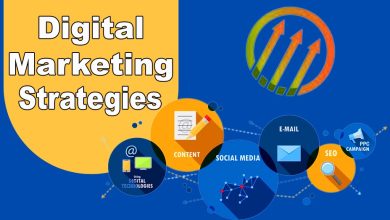Digital Marketing Budgeting: The Key to Strategic Success

In this rapidly evolving digital landscape, businesses face the challenge of staying relevant and competitive. One of the pivotal aspects of navigating this digital domain effectively is through astute digital marketing budgeting. This article will provide the basics of digital marketing budget allocation, offering insights and strategies to businesses aiming to maximize their online presence and ROI.
Understanding the Importance of Digital Marketing Budgeting
In business, particularly in the digital era, the adage “you need to spend money to make money” holds true. Digital marketing is no exception. However, it’s not just about spending but spending wisely. A well-planned digital marketing budget ensures that every dollar contributes towards specific, measurable outcomes, be it brand awareness, lead generation, or sales.
Setting Your Digital Marketing Goals
Before diving into the numbers, defining what you aim to achieve is crucial. Goals could range from increasing website traffic by 30% to boosting online sales by 20%. These objectives should be SMART: Specific, Measurable, Achievable, Relevant, and Time-bound. Your goals will guide how you allocate your budget across various digital marketing channels.

Analyzing Past Performance
A look back at past marketing efforts can reveal a lot about what works and what doesn’t. Analyze metrics such as engagement rates, conversion rates, and ROI from previous campaigns. This historical data helps in making informed decisions about future budget allocation.
The Digital Marketing Budget Breakdown
A digital marketing budget can be broadly divided into several key areas:
Search Engine Optimization (SEO): SEO is vital for improving visibility and ranking on search engines like Google. Budgeting for SEO involves costs for keyword research tools, content creation, and potentially hiring SEO experts.
Pay-Per-Click Advertising (PPC): PPC campaigns, such as Google Ads or social media advertising, require a significant portion of the budget. The advantage is that they offer immediate visibility and the ability to precisely target audiences.
Content Marketing: This is about creating and sharing valuable, relevant, and consistent content to attract and retain target audience. Budgeting for content marketing might include costs for content creation, distribution, and promotion.
Social Media Marketing: The social media budget includes costs for ad spend, tools for scheduling and analytics, and possibly influencer collaborations.
Email Marketing: Often underrated, email marketing remains a powerful tool. Budget allocation here would be for email marketing software and potentially for content creation.
Website Development and Maintenance: Your website is often the first point of contact for potential customers. Budgeting for website development and maintenance is crucial.
Allocating the Budget
The allocation depends largely on your business type, audience, and goals. For example, a B2B company might invest more in LinkedIn advertising and content marketing, while a B2C company might focus more on Facebook and Instagram ads. Startups might allocate more to brand awareness, while established businesses might focus on customer retention strategies.
The Role of Analytics and Tools
Utilize analytics tools to track the performance of your digital marketing efforts. Tools like Google Analytics, SEMrush, or Hootsuite provide invaluable insights. The cost of these tools should be considered in the budget.

Flexibility and Adaptation
The digital marketing landscape is dynamic. Be prepared to adjust your budget in response to market changes, new trends, or the performance of ongoing campaigns.
Digital Marketing Budgeting: Strategies for Optimization
Having established the importance of digital marketing budgeting and the primary areas of focus in the first part of this article, let’s now explore how to optimize this budget for maximum impact.
Strategic Allocation: Balancing Act
Effective budgeting is about finding the right balance. It’s tempting to pour funds into the latest trends or platforms, but it’s essential to distribute your budget across various channels to mitigate risk and capitalize on multiple opportunities. A diversified approach ensures you don’t put all your eggs in one basket and allows for more comprehensive market reach.
Cost-Effective Content Marketing
Content is king in the digital world. It drives SEO, fuels social media, and powers email marketing. Investing in high-quality, versatile content is cost-effective in the long run. For instance, a well-researched blog post can be repurposed into a series of social media posts, an infographic, or even a webinar. This multipurpose approach gets more bang for your buck.
Data-Driven Decisions
Leverage data analytics to make informed decisions about where to allocate funds. Monitor which channels are driving traffic, generating leads, and converting sales. This insight allows you to allocate more budget to high-performing channels and revise strategies for those underperforming.
Testing and Optimization
The digital marketing landscape is continually evolving, making testing and optimization crucial. Allocate a portion of your budget for A/B testing various aspects of your digital marketing campaigns, like ad copy, landing pages, or email subject lines. This practice helps in fine-tuning your strategies for better performance.
Leveraging Automation and AI
Invest in marketing automation and AI tools. These can streamline processes, provide predictive analytics, and enhance personalization, all of which can lead to more effective marketing strategies and better use of your budget.
The Role of Skilled Personnel
Your digital marketing budget should also account for the talent running these campaigns. Whether it’s in-house experts or outsourced agencies, ensuring you have skilled professionals is vital. They can make more efficient use of your budget, leveraging their expertise to achieve better results.
Measuring ROI: The Ultimate Barometer
Ultimately, the success of your digital marketing budgeting comes down to ROI. Continuously measure the returns on your investments. This not only justifies the expenditure but also guides future budgeting decisions.
Preparing for the Future
Stay informed about the latest digital marketing trends and technologies. Allocating a portion of your budget for emerging platforms or experimental marketing tactics can give you a competitive edge.
Practical Steps to Take
Regular Review and Adjustment: Regularly review your budget allocation in light of performance data and market trends. Be flexible and ready to shift funds as necessary.
Employee Training: Invest in training your team in the latest digital marketing techniques and tools. Skilled personnel can optimize budget use significantly.
Customer-Centric Approach: Align your budgeting with customer behavior and preferences. Investing in areas that most appeal to your target audience ensures better engagement and conversion.
Conclusion
Effective digital marketing budgeting is a dynamic and multifaceted process. It requires a balance between various marketing channels, leveraging data for informed decision-making, and continuous optimization. By adopting a strategic approach, investing in quality content, and keeping an eye on ROI, businesses can ensure that their digital marketing efforts are not just cost-effective, but also highly successful in driving growth and building a robust online presence.




